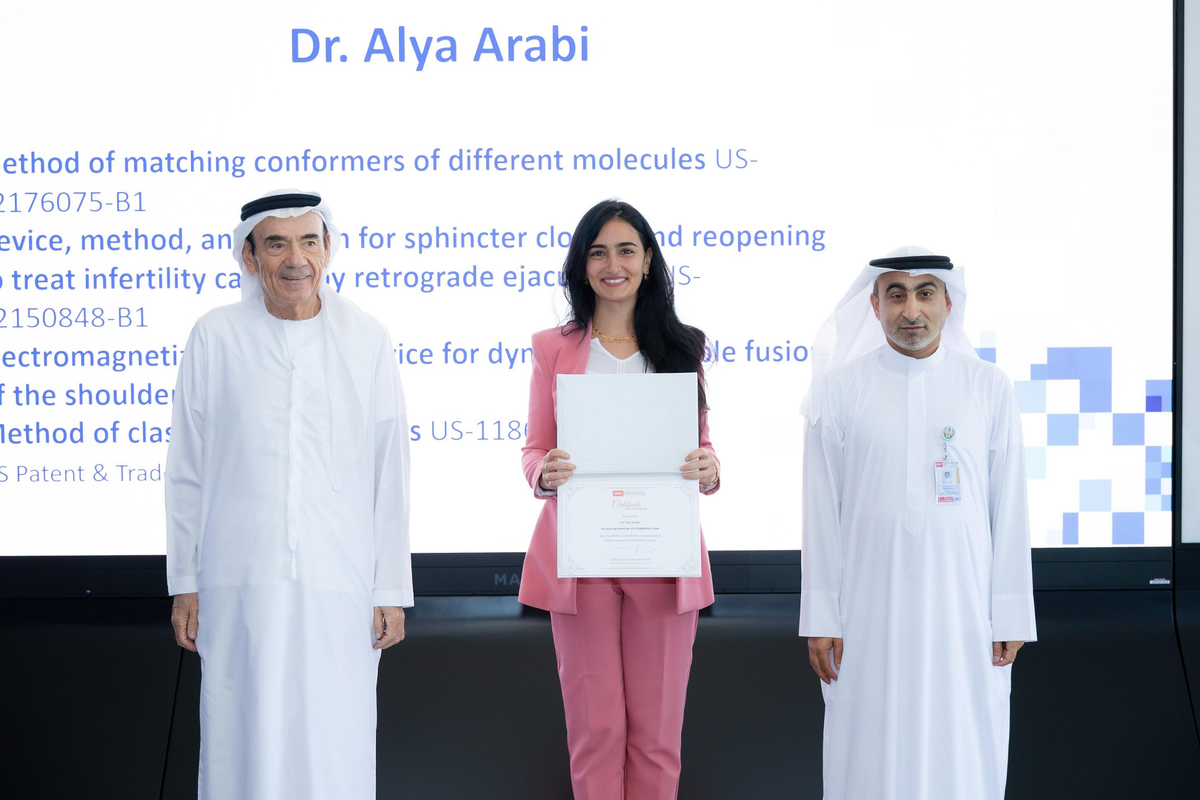News Desk
The News Desk provides timely and factual coverage of national and international events, with an emphasis on accuracy and clarity.

With strong institutional support from UAEU during the patent process, Dr. Arabi now aims to move from research to commercialization.
WAM
The United Arab Emirates University (UAEU) has announced that Dr. Alya A. Arabi, a computational scientist at the institution, has been granted four patents for cutting-edge innovations spanning pharmaceutical research and biomedical engineering, WAM reported.
Dr. Arabi’s work reflects a deep interdisciplinary approach, integrating computational science, quantum mechanics, engineering, and the emerging role of artificial intelligence to solve complex challenges in healthcare.
Two of the newly granted patents focus on advancing drug discovery methods. The first introduces a system for classifying molecular conformers - variations in a molecule's structure - based on their interactions with human proteins. The second complements it by enabling the identification of conformers from different molecules that behave similarly when binding to biological targets.
“These methods are innovative advancements in in-silico drug design,” said Dr. Arabi. “They facilitate drug discovery processes while reducing the reliance on resource-heavy laboratory experiments, making research more efficient.”
Her third patent represents a breakthrough in orthopedic medicine. In collaboration with Prof. Bassem T. ElHassan of Massachusetts General Hospital (Harvard Medical School) and Eng. Ali O. Arabi, the team developed a device and method that allow patients with complete shoulder paralysis to regain full mobility - an outcome previously considered unattainable in severe cases.
The fourth invention, co-developed with Eng. Ali O. Arabi, addresses two widespread medical concerns: male infertility due to retrograde ejaculation and urinary incontinence. The patented biomedical device is designed to serve both reproductive and urological functions, offering a dual-purpose solution for patients affected by either or both conditions.
“These inventions show what happens when curiosity, advanced technology, and practical problem-solving intersect,” said Dr. Arabi.
With strong institutional support from UAEU during the patent process, Dr. Arabi now aims to move from research to commercialization. “My next challenge is to translate these prototypes into market-ready products, maximizing their real-world impact,” she noted.
Zaki Anwar Nusseibeh, Chancellor of UAEU, praised the achievement, stating:
"These patents are a remarkable testament to the spirit of scientific innovation and excellence we foster at UAEU. Dr Arabi’s ability to bridge disciplines, bringing together computational science, medicine, and engineering, demonstrates the university’s strength as a center for transformative research. These achievements not only enhance UAEU’s global standing but also contribute meaningfully to the health and well-being of communities around the world. I extend my heartfelt congratulations to Dr. Arabi and her colleagues for her pioneering contributions and for embodying the university’s mission to improve lives through knowledge."










Comments
See what people are discussing